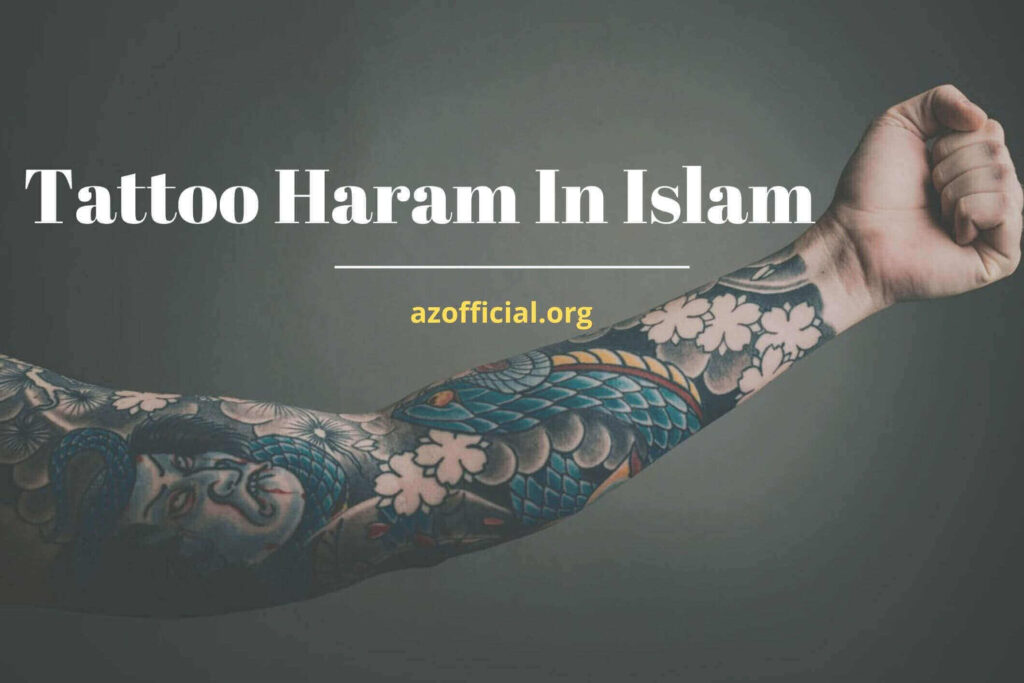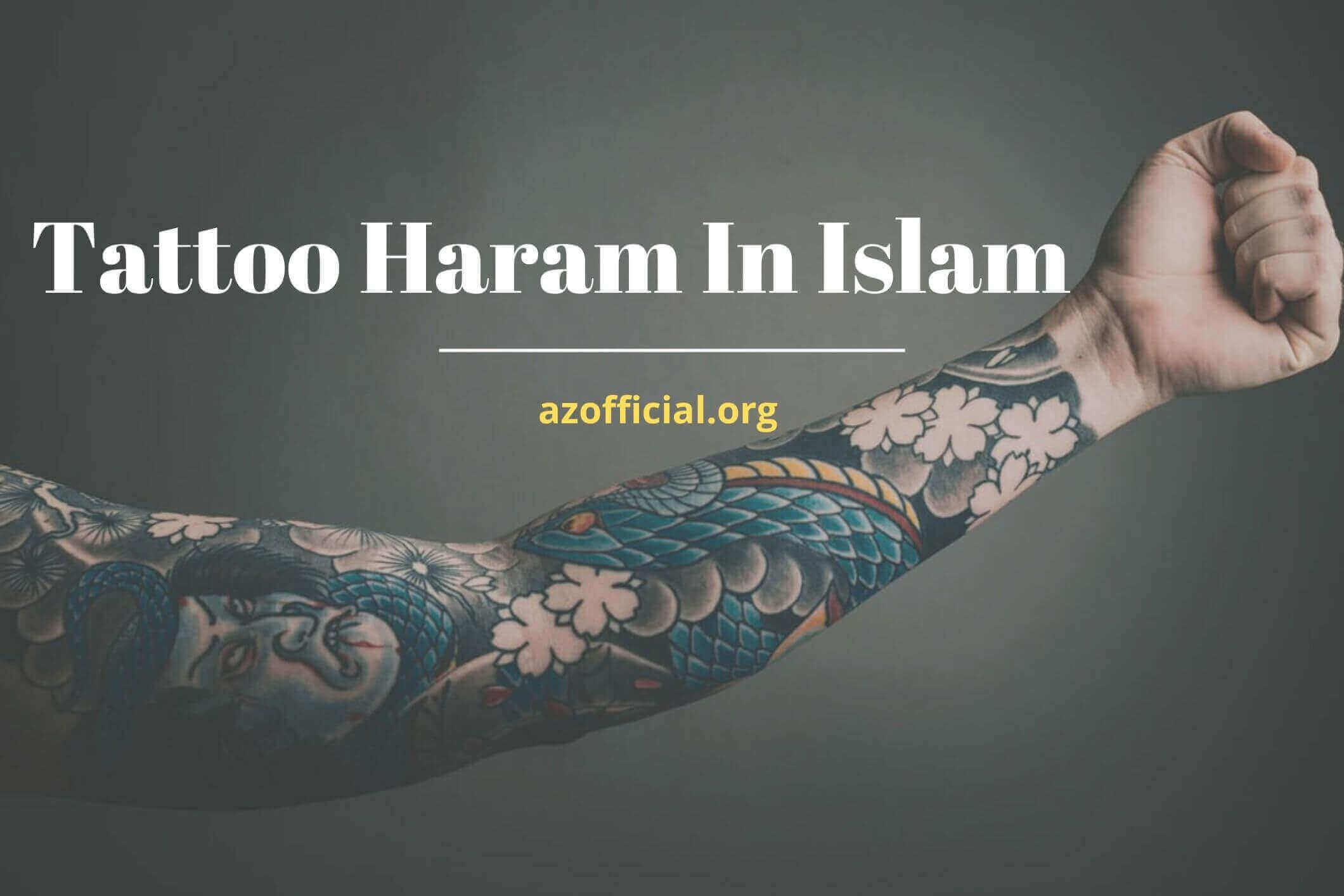
Islamic Tattoos for Men: Exploring Faith, Art, and Modern Expression
The intersection of faith, art, and personal expression is a complex and often debated topic. One area where this intersection becomes particularly intriguing is the concept of Islamic tattoos for men. While traditional interpretations of Islam may discourage or prohibit tattoos, a growing number of individuals are exploring ways to reconcile their faith with their desire to express themselves through body art. This article delves into the nuances of this practice, examining the cultural, religious, and artistic considerations surrounding Islamic tattoos for men.
Understanding the Religious Perspectives
Before exploring specific designs and artistic interpretations, it’s crucial to understand the religious context. Traditional Islamic teachings often discourage or prohibit tattoos based on interpretations of the Quran and Hadith. Some scholars argue that tattoos alter God’s creation, while others cite concerns about hygiene and purity. However, these interpretations are not universally accepted, and varying opinions exist within the Muslim community.
Some Muslims believe that tattoos are permissible if they do not depict prohibited images (such as idols or representations of God) and if the tattooing process does not involve causing unnecessary harm. The intention behind the tattoo also plays a significant role. For example, a tattoo intended to honor God or express faith might be viewed differently than a tattoo done purely for aesthetic reasons.
Navigating the Cultural Landscape
Cultural norms surrounding tattoos also vary widely across the Muslim world. In some regions, tattoos have a long history and are considered a part of traditional culture. In others, they are viewed as a more recent and Westernized phenomenon. This cultural diversity adds another layer of complexity to the discussion of Islamic tattoos for men.
It’s important to be mindful of the cultural context in which you are expressing yourself through tattoos. What is acceptable in one community may be considered offensive in another. Researching and understanding the local customs and traditions can help you navigate this sensitive issue with respect and awareness.
Artistic Expressions of Faith
Despite the religious and cultural complexities, many men are finding creative ways to express their faith through Islamic tattoos. These tattoos often incorporate Arabic calligraphy, geometric patterns, and symbolic imagery that reflect Islamic values and beliefs.
Arabic Calligraphy Tattoos
Arabic calligraphy is a beautiful and intricate art form that lends itself perfectly to tattoos. Many men choose to get tattoos of Quranic verses, names of God, or other religious phrases written in elegant Arabic script. These tattoos can serve as a constant reminder of their faith and a source of inspiration.
When choosing a calligraphy tattoo, it’s important to ensure that the script is accurate and legible. Consult with a skilled tattoo artist who is familiar with Arabic calligraphy to avoid any errors or misinterpretations. Also, consider the meaning of the phrase you are choosing and ensure that it aligns with your personal beliefs and values. [See also: Meaningful Arabic Tattoos]
Geometric Pattern Tattoos
Geometric patterns are another popular choice for Islamic tattoos for men. Islamic art is characterized by its intricate geometric designs, which are often based on mathematical principles and symbolic representations of the universe. These patterns can be used to create stunning and visually appealing tattoos that reflect the beauty and complexity of Islamic art.
Common geometric patterns used in Islamic tattoos include stars, rosettes, and tessellations. These patterns can be incorporated into larger designs or used as standalone elements. They offer a subtle and sophisticated way to express your faith without explicitly depicting religious figures or symbols.
Symbolic Imagery Tattoos
Symbolic imagery can also be used to create meaningful Islamic tattoos. For example, a crescent moon and star are often used as symbols of Islam. Other symbols, such as the Hamsa hand (a protective amulet) or the olive branch (a symbol of peace), can also be incorporated into tattoo designs.
The key to choosing symbolic imagery is to select symbols that resonate with your personal beliefs and experiences. Consider the meaning behind each symbol and how it relates to your faith journey. A well-chosen symbol can add depth and significance to your tattoo.
Considerations for Choosing an Islamic Tattoo
If you are considering getting an Islamic tattoo, there are several important factors to keep in mind:
- Religious Beliefs: Reflect on your own religious beliefs and interpretations. Are you comfortable with the idea of getting a tattoo, given the traditional Islamic perspectives on the matter?
- Cultural Context: Consider the cultural norms in your community. How will your tattoo be perceived by others? Are you prepared to deal with any potential criticism or disapproval?
- Design and Meaning: Choose a design that is meaningful to you and that reflects your personal faith journey. Ensure that the design is accurate and respectful of Islamic traditions.
- Tattoo Artist: Select a skilled and reputable tattoo artist who is familiar with Islamic art and calligraphy. Look for an artist who is willing to work with you to create a design that meets your needs and expectations.
- Placement: Consider the placement of your tattoo. Choose a location that is both aesthetically pleasing and respectful of Islamic traditions. Avoid placing tattoos on sensitive areas or areas that are considered impure.
The Future of Islamic Tattoos
The discussion surrounding Islamic tattoos for men is likely to continue as younger generations explore new ways to express their faith and identity. As cultural norms evolve and interpretations of religious teachings become more nuanced, it is possible that tattoos will become more widely accepted within the Muslim community. However, it is important to approach this topic with sensitivity and respect for diverse perspectives.
Ultimately, the decision to get an Islamic tattoo is a personal one. It is up to each individual to weigh the religious, cultural, and artistic considerations and to make a choice that aligns with their own beliefs and values. By approaching this topic with careful consideration and respect, it is possible to find a way to express your faith through body art in a meaningful and authentic way. The trend of Islamic tattoos for men is a testament to the evolving landscape of religious expression in the modern world. [See also: The History of Tattoos in Islamic Cultures]
Finding Inspiration for Your Islamic Tattoo
If you’re looking for inspiration for your own Islamic tattoo, consider exploring the following resources:
- Islamic Art Galleries: Visit museums and galleries that showcase Islamic art. This can provide you with a wealth of ideas for geometric patterns, calligraphy, and symbolic imagery.
- Online Resources: Explore websites and social media platforms that feature examples of Islamic tattoos. Be sure to vet the sources carefully to ensure that the designs are accurate and respectful.
- Consult with a Scholar: If you have questions about the religious permissibility of tattoos, consult with a knowledgeable Islamic scholar. They can provide you with guidance based on your individual circumstances and beliefs.
- Collaborate with an Artist: Work closely with your tattoo artist to develop a custom design that reflects your personal style and beliefs. A skilled artist can help you bring your vision to life in a way that is both aesthetically pleasing and meaningful.
In conclusion, the world of Islamic tattoos for men is a fascinating intersection of faith, art, and personal expression. While navigating the religious and cultural complexities requires careful consideration, it is possible to find creative and meaningful ways to express your faith through body art. By approaching this topic with respect and awareness, you can create a tattoo that is both beautiful and spiritually significant. The enduring appeal of Islamic tattoos lies in their ability to connect individuals with their faith in a tangible and visible way. Remember to always prioritize understanding and respect when exploring this sensitive topic. From calligraphy to geometric patterns, the possibilities for expressing faith through ink are vast and varied, making Islamic tattoos for men a powerful form of self-expression. The key is to approach the process thoughtfully and intentionally, ensuring that your tattoo is a true reflection of your beliefs and values. Consider the long-term implications and consult with trusted sources to make an informed decision. The growing popularity of Islamic tattoos for men signals a shift in how individuals are choosing to express their faith, blending tradition with modern forms of self-expression.

